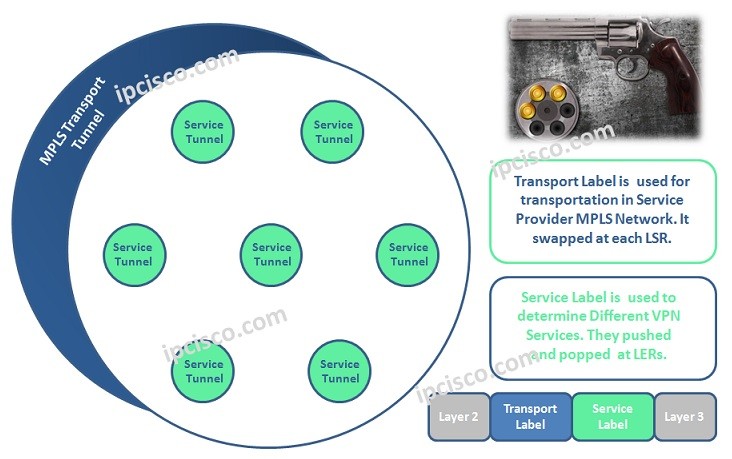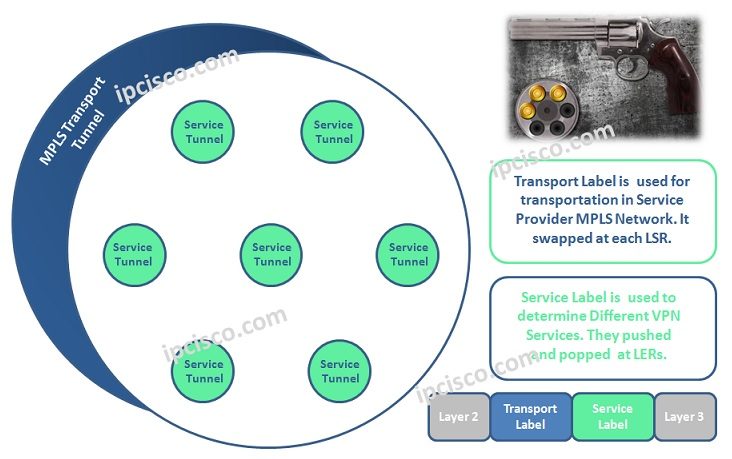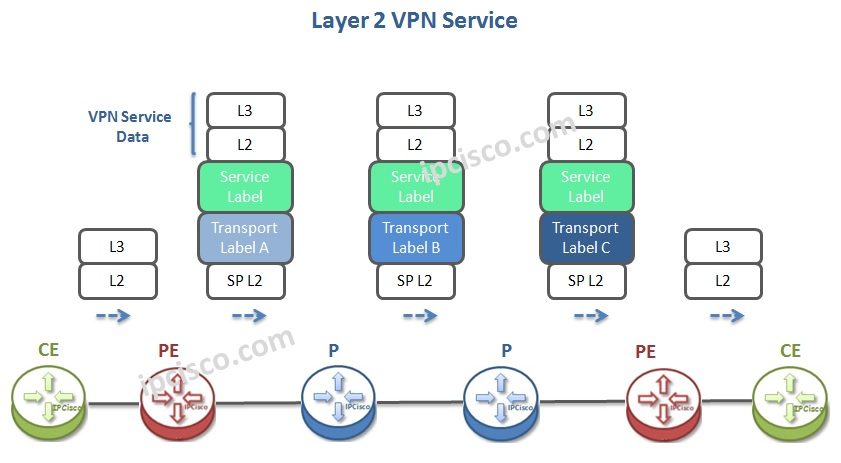- COURSES
- SPECIALS
- BLOG
- MEMBERS
- SHOP
- ABOUT
- ENROLL HERE

In another lesson, we have talked about MPLS Label Switching. Here, we will talk about MPLS VPN Label. MPLS Mechanism uses two types MPLS Labels to accomplish MPLS VPN Services. This is like a tunnel mechanism. A transport tunnel and many sub service tunnels in it. It seems like a Six-shooter:) Below, you will understand this mechanism better.
If you would like to learn more about MPLS, you can follow the lessons of Nokia MPLS Training.
MPLS VPN Labelling is similar to normal labelling but here MPLS VPN Label is also added to the packets. In other words, one more label is used to transport VPN Services. To provide VPN (Virtual Private Network) Service, customer data must be encapsulated and transport through the Service Provider Network.
There are two types MPLS Labels that are used in MPLS VPN Services. These MPLS Labels are:
Transport Label is the Label that is swapped in the Service Provider MPLS network in each LSR. It is the main MPLS Label.
Service Label is the Label, that is used to determine MPLS VPN Services. It is the MPLS VPN Label. This MPLS VPN Label stays during swap process in MPLS network. It is transported from one LER to another LER without any change. At the ingress LER, it is pushed with Transport Label. At the Egress LER it is popped with the Transport Label.

If you would like to learn more about MPLS, you can follow the lessons of Nokia MPLS Training.
There are Layer 2 and Layer 3 VPN Services as you know. MPLS VPN Services are also explained in a long article series. You can also check that part, if you would like to go deeply about VPN Services. Here, we will talk about the Labeling mechanims for this two types of VPN.
Layer 2 VPN, in other words, VPWS or VPLS uses these two labels of MPLS, Transport Label and Service Label. At the ingress LER (PE), these two labels are pushed to the normal packet that is consist of Layer 2 and Layer 3 headers, VPN Service Data. So, customer Layer 2 Header stays, it is not removed. But at ingress LER (PE), also a Service Provider Layer 2 header is added to the packet. After that, in each LSR (P), Tranport Label is swapped. Service Label stays unchanged. And lastly, they are both popped at egress LER (PE). The VPN Service Data is transferred to the customer’s router as unchanged.


Leave a Reply